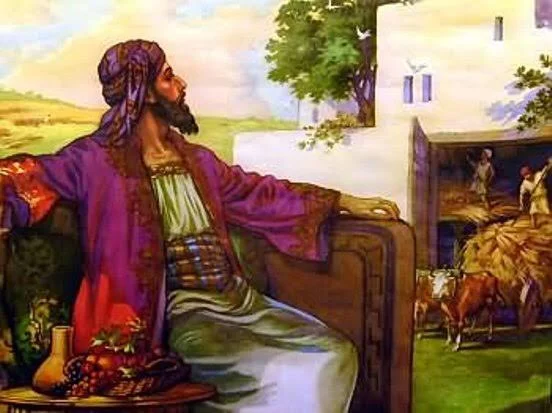Readings for the day: Luke 12-13:30
One of the real benefits of coming to Africa is learning to think in different ways. Ethiopia is an honor-shame culture like much of the rest of the world. What this means is they tend to think collectively instead of individually. Morality is determined relationally rather than internally. The focus is not so much on how to get something right as it is to honor the person and/or community in the process.
The Bible is written in an honor-shame cultural context. It cannot be fully understood apart from this. The stories Jesus tells are less “morality tales” and more about how to honor God and one another through the gospel. The story of the rich fool is a prime example of what I’m talking about. The traditional interpretation is that the man placed his trust in his riches. His sin was to build bigger barns. He was greedy and therefore fell under God’s judgment. But a close reading from the honor-shame perspective reveals even deeper truths.
What was the man’s primary sin? What was it that would have been obvious to everyone listening to Jesus that day? It was when he said, “I know what I will do…” His refusal to honor the community was his major mistake. Whenever a person had a bumper crop in the 1st century, he would make his way down to the village gate to seek advice from the elders. He would tell of the abundant blessings God had poured out on him and he would ask them what he should do. They would deliberate and discuss but eventually would suggest things like making an extravagant offering to the Lord, throwing a party so the whole village could celebrate, and giving to the poor. The man would then go out and do all these things in an effort to bring honor to his community. If, after giving to God and giving to the poor and throwing a party, he still had too much for his current barns to hold then perhaps it would be time to throw up new barns. Perhaps the whole community would come out to help. And everyone would experience the blessing.
As American Christians, we tend to think far too individualistically and we tend to read the Bible far too individualistically. We turn everything into a personal morality tale and while that isn’t all bad, it certainly doesn’t get to the heart of the gospel. When Adam and Eve first sinned in the Garden of Eden, they realized they were naked and immediately felt ashamed. The heart of the story from Genesis 3 onward is of a God who is on a mission to remove our shame. Remove our guilt. Remove our sin. He seeks to cover our shame with His own honor and that’s why Jesus tells the stories He does. This is the central message at the heart of the Good Samaritan and the Prodigal Son. It’s the primary driver behind this parable of the rich fool and so many others like it. Jesus takes all His divine honor and glory and gives it away to tax collectors and prostitutes and other sinners.
How then do we respond? We respond the way a tax collector named Zaccheus did. He gave away half of his possessions and made restitution to those he had defrauded. We respond the way a prostitute did, breaking a jar of costly ointment – her most prized possession – over Jesus’ head in an extravagant act of devotion. We respond the way the first disciples did, leaving everything behind in order to follow Jesus. This is how who have been honored by God seek to honor Him in return.
